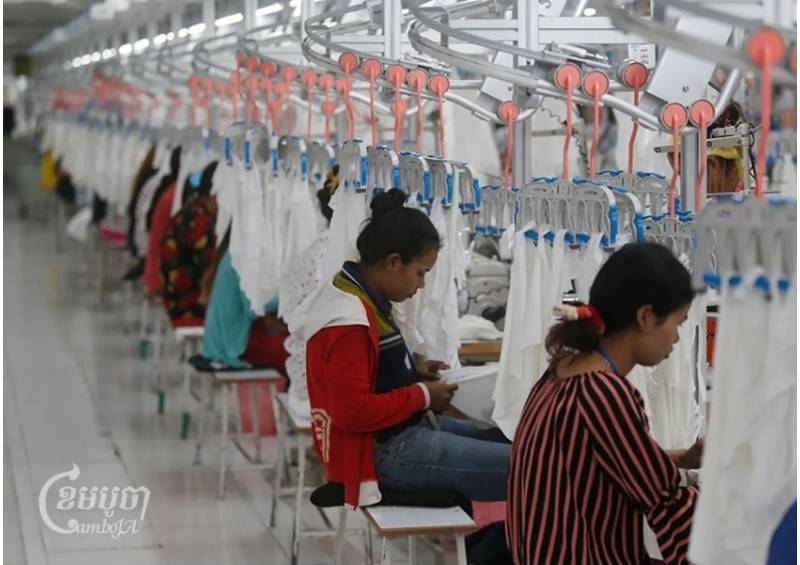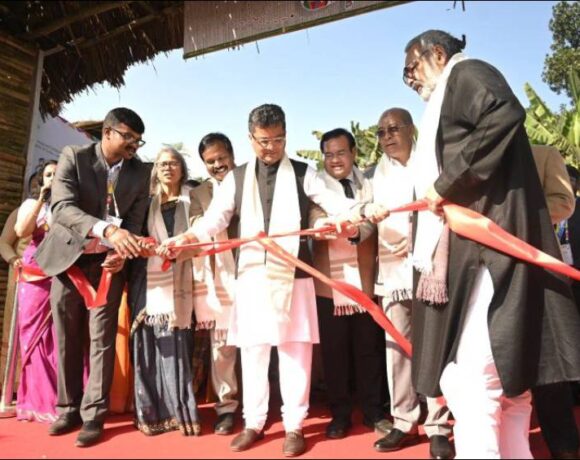Climate Change Impacts Cambodian Women Garment Workers

A recently released report has found critical links between climate and environment-related impacts and worsening labour conditions in Cambodia’s garment sector.
According to a report by NGO-CEDAW, climate change is not a future concern for garment workers, but that is already affecting them, with over two-thirds of them suffering the effects of global warming.
The organisation launched its 2022 monitoring report highlighting information from its NGO partners, while summarising an investigative report on the impact of climate change on female workers.
“Some 29 percent of workers experienced extreme weather or other disasters at their accommodations, of which 63 percent reported flooding and 42 percent extreme heat,” the report said.
A factory worker shared that her workplace does not have enough ventilation and is hot, especially during summer, which sees workers perspiring more and becoming exhausted.
When it is hot, workers drink a lot of water to stay hydrated, however, that makes them go to the toilet often and at times the leader of each sewing line chides the workers who do that.
“When the workers go to the toilet often, the leader of the sewing line scolds them with the bad words. There’s no respect for individual rights,” Cambodian Journalists Alliance Association quoted a worker.
Another worker said that the workers there are affected by climate change especially during the rainy season.
She explained that the path leading to the factory from her rental room floods up to knee-level and sometimes the waist, which makes it difficult for workers to go to work.
“Due to flooding, the road is damaged, in which case motorcyclists are prone to accidents. We are also worried about the safety of pregnant workers because the road is slippery,” the women worker added.
According to her, workers asked the factory management to repair parts of the road that were badly damaged by the floods, but nothing happened.
The management said road repairs were not under their control. Following that, she asked the authorities to repair the damaged roads.
The association quoted a spokesperson of the Labour Ministry who said that the ministry has never received information about negative impacts of climate change on the health of workers.
“The ministry has assessed the working conditions of workers in the past and found that climate change has not affected their health,” he added.
“Climate change could affect female workers in many ways. These range from negative health impacts from working in hot temperatures, flooding to loss of income due to extreme weather conditions,” Louise Goldman, Deputy Country Program Director of Solidarity Center also said.
Heat stress can cause a number of health problems, including heat stroke and cramps, heat exhaustion, dizziness, nausea, hospitalisation and even death, especially during pregnancy and menopause.
Men’s health is also impacted by heat stress, contributing to issues such as male infertility.
“The health impacts can result in wage loss due to time off from work. Workers’ mental health can also be affected if they are unable to generate income because of extreme heat,” Goldman stated.
Click here to read or download the report














